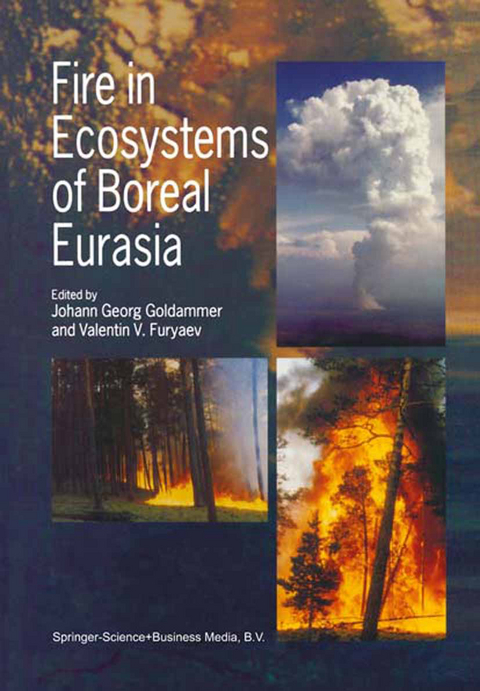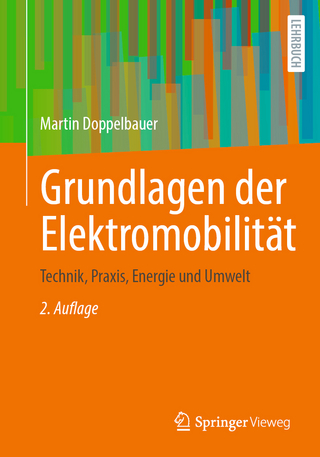
Fire in Ecosystems of Boreal Eurasia
Springer (Verlag)
978-90-481-4725-0 (ISBN)
I. Introduction.- Fire in Ecosystems of Boreal Eurasia. Ecological Impacts and Links to the Global System.- II. Fire in Boreal Ecosystems: History and Patterns.- Wild Hearth. A Prolegomenon to the Cultural Fire History of Northern Eurasia.- Retrospective Analysis of Natural Fire Regimes in Landscapes of Eastern Fennoscandia and Problems in Their Anthropogenic Transformation.- The Impact of Fire on Finnish Forests in the Past and Today.- The Role of Paleofire in Boreal and Other Cool-Coniferous Forests.- Fire and Climate History in the Central Yenisey Region, Siberia.- Reconstruction of Summer Temperatures with a Circumpolar Tree Ring Network.- III. Statistics and Dynamics.- Analysis of the Distribution of Forest Fires in Russia.- Temporal and Spatial Distribution of Forest Fires in Siberia.- Major 1992 Forest Fires in Central and Eastern Siberia. Satellite and Fire Danger Measurements.- IV. Geographical Analysis.- Fire Ecology of Pine Forests of Northern Eurasia.- Pyrological Regimes and Dynamics of the Southern Taiga Forests in Siberia.- The Role of Fire in Forest Cover, Structure, and Dynamics in the Russian Far East.- Importance of Fire in Forest Formation under Various Zonal-Geographic Conditions of the Far East.- Fires in Ecosystems of the Far Northeast of Siberia.- Fire-Induced Transformations in the Productivity of Light Coniferous Stands of the Trans-Baikal Region and Mongolia.- Forest Fires in the Eastern Trans-Baikal Region and Elimination of their Consequences.- V. Pyrological Classification of Landscapes, Sites and Fuel Types.- Pyrological Zoning: Principles, Methods, and Significance of the Role of the Geographical Factor in the Problem of Wildland Fires.- Forest Fuel Maps.- Sectoral and Zonal Classes of Forest Cover in Siberia and Eurasia as a Basis of Clarifying Landscape Pyrological Characteristics.- VI. Fire Characteristics: Behavior and Modelling.- The Extreme Fire Season in the Central Taiga Forests of Yakutia.- Forest Fire Spread as a Probabilistic Modelling Problem.- Information Technology for Forest Fire Danger Rating Evaluation.- Mathematical Modelling of Forest Fires.- Mathematical Modelling and Optimization of Forest Fire Localizaton Processes.- A Mathematical Model of Spread of High-Intensity Forest Fires.- VII. Ecological Effects of Fire.- Burned Forest Area Type Classification.- Fires and Soil Formation.- Soil Microbial Biomass: Determination and Reaction to Burning and Ash Fertilization.- Ecological Effects of Peat Fire on Forested Bog Ecosystems.- Effects of Fire on the Regeneration of Larch Forests in the Lake Baikal Basin.- Post-Fire Mortality and Regeneration of Larix sibirica and Larix dahurica in Conditions of Long-Term Permafrost.- The Main Trends of Post-Fire Succession in Near-Tundra Forests of Central Siberia.- Fire Effects on Larch Forests of Central Evenkia.- Ecological Estimation of Forest Succession Patterns in Central Angara Region.- Forest Formation Processes after Fire in the Volga Region.- Response of the Endemic Insect Fauna to Fire Damage in Forest Ecosystems.- Simulation of Forest Insect Outbreaks.- Fire — Vegetation — Wildlife Interactions in the Boreal Forest.- Fire Ecology in Sweden and Future Use of Fire for maintaining Biodiversity.- Impacts of Prescribed Burning on Soil Fertility and Regeneration of Scots Pine (Pinus sylvestris L.).- VIII. Fire, Atmosphere, and Climate Change.- Composition of Smoke from North American Boreal Forest Fires.- The Effects of Forest Fires on the Concentration and Transport of Radionuclides.- Fire Weather Climatology in Canada and Russia.- RiskAnalysis in Strategic Planning. Fire and Climate Change in the Boreal Forest.- Fire-Climate Change Hypotheses for the Taiga.- Annex I.- Understanding Boreal Ecosystems Opening Remarks by E.W. Ross, International Conference “Fire in Ecosystems of Boreal Eurasia” (Krasnoyarsk 1993).- Annex II.- International Boreal Forest Research Association (IBFRA) Stand Replacement Fire Working Group.- Annex III.- Fire Research in the Boreal Forests of Eurasia: A Component of a Global Fire Research Program.
| Reihe/Serie | Forestry Sciences ; 48 |
|---|---|
| Zusatzinfo | XII, 531 p. |
| Verlagsort | Dordrecht |
| Sprache | englisch |
| Maße | 160 x 240 mm |
| Themenwelt | Naturwissenschaften ► Biologie ► Ökologie / Naturschutz |
| Naturwissenschaften ► Chemie ► Physikalische Chemie | |
| Naturwissenschaften ► Geowissenschaften ► Geologie | |
| Naturwissenschaften ► Geowissenschaften ► Meteorologie / Klimatologie | |
| Weitere Fachgebiete ► Land- / Forstwirtschaft / Fischerei | |
| ISBN-10 | 90-481-4725-5 / 9048147255 |
| ISBN-13 | 978-90-481-4725-0 / 9789048147250 |
| Zustand | Neuware |
| Informationen gemäß Produktsicherheitsverordnung (GPSR) | |
| Haben Sie eine Frage zum Produkt? |
aus dem Bereich


